Coconut Water and Coconut Juice
[ad] Empty ad slot (#1)!
Coconut water, or coconut juice is not the same as coconut milk. Coconut water is found in young coconuts. As the coconut grows, the coconut water gradually turns into the meat of the coconut. Coconut water is a naturally fat free liquid which has become a popular beverage in the tropics. In Costa Rica, the coconut water is called aqua de pipa, in Brazil it is known as aqua de coco. It is the second most popular drink, with only orange juice surpassing it. Many tropical locations will cut the coconut in front of you so that you can be sure it is fresh. Coconut water tastes differently depending on where you get it. Different coconuts grown in different locations will have varying tastes. Some sweet, some mild. But all coconut water is delicious. Coconut juice is basically just coconut water. Some call it coconut juice, others call it coconut water. Coconut juice is becoming very popular not only in the tropics, but in the United States as well. The success of the owners of one of the world’s biggest coconut juice companies got their start by meeting two Brazilian women in a bar who told them about the amazing drink they had in their country. The men then flew to Brazil and started their own coconut juice company. Coconut juice is fat free, all natural, hydrates you well, and has added health benefits as well. It’s no wonder more and more people are turning to coconut juice.
Coconut Water: A Miracle Juice
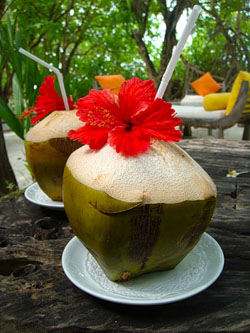 Coconut water, or coconut juice, is the clear juice inside very young coconuts. As the coconut ages, the water it contains is slowly converted to meat and air. Young coconuts contain little meat, and a great deal of coconut water. As a result, coconuts used to manufacture coconut water are harvested very early while they are still green in color. In some cases, the coconut is split at the moment of purchase to ensure freshness.
Coconut water, or coconut juice, is the clear juice inside very young coconuts. As the coconut ages, the water it contains is slowly converted to meat and air. Young coconuts contain little meat, and a great deal of coconut water. As a result, coconuts used to manufacture coconut water are harvested very early while they are still green in color. In some cases, the coconut is split at the moment of purchase to ensure freshness.
Coconut water is typically canned or bottled. It is sold as a sports drink due to it’s high mineral and potassium content. One single cup of coconut water has nearly twice the amount of potassium in a banana, and more electrolytes than almost any sports drink on the market today. It helps prevent strokes and heart attacks, and is commonly used as a hangover remedy. In many developing countries coconut water is used to hydrate patients intravenously in place of medical saline solution, as saline can be difficult for these nations to obtain.
According to Merrill Lynch, in the last five years the U.S. coconut water industry skyrocketed from zero all the way to $35 million. This is due to the large number of health benefits associated with coconut juice. It helps regulate body temperature, carry oxygen through the blood, fight viruses and bacterial infections, control diabetes, boost circulation, treat kidney stones, clean and detoxify the digestive system, and balance the body’s pH which is believed to reduce the risk of cancer.
Coconut water is low in fat and calories. It contains no cholesterol. Because coconut water is filtered through the husk, it is naturally sterile. Astonishingly, coconut water has the same level of electrolytes as human blood. It is identical to human blood plasma, and is used as a universal donor. During the Pacific War, coconut water was used on a regular basis to give emergency blood transfusions to wounded soldiers.

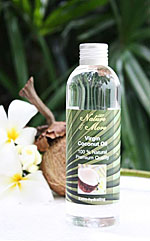 Coconut Oil
Coconut Oil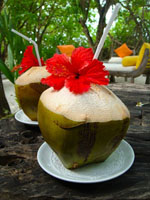 Coconut Juice
Coconut Juice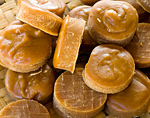 Coconut Sugar
Coconut Sugar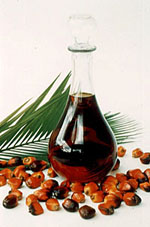 Palm Kernel Oil
Palm Kernel Oil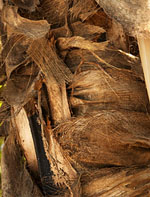 Copra
Copra